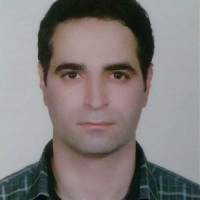A new document about the composer of SamName
SamName is one of the heroic poems about the courage of Sam Nariman, which was written in imitation of Ferdowsi's Shahname. Knowing the composer of this poem and also the period of its composition is one of the complex topics of Iranian epic literature. In some recent sources, SamName has been attributed to Khajooie Kermani, the famous poet of the eighth century, and the attention to this point and the mention of Khajou in a number verses of this poem, the authenticity of which is doubtful, has caused some scholars to consider the SamName as the poem of this poet. However, a number of other scholars have rejected this attribution. Recently, by examining the manuscript versions of the ShabrangName and based on the phrase at the end of one of its manuscripts, a researcher has hypothesized that SamName is the poem of an anonymous poet named Khajou Shahname Khan Korati. In this paper, we first examine the different opinions and theories of researchers about the narrator of the system, then by providing the final verses of one of the manuscripts of this poem, we that the poet of SamName as Khajou Shahname Khan, , he composed this poem around the tenth century.
The research method in this paper is library and fiching (indexing). Among orientalists, Spiegel was the first one who considered the SamName as the composition of Khajou. After him, Jules Moll referred to the SamName, in the introduction of Shahname, without mentioning its composer and only wrote that its source goes back to the stories of the Sassanid period. Shortly afterward, Herman Ateh considered it a kind of forgery and change of Homay and Homayoun prepared by Khajoui Kermani, without mentioning the composer of SamName, Jan Ripka also called the SamName shameless plagiarism of Homay and Homayoun and argue that it belongs to the Timurid period. In Iran, Bahman Sarkarati was the first one who hypothesized that perhaps a poet named Khajou, and not the famous Khajavi Kermani, composed the system with little literacy. Shortly later, Mahmoud Abedi wrote in an article that the composer of SamName is apparently someone from the class of narrators, storytellers, and familiar with the Shahname and Garshasbname, which is attached to verbal folklore stories. After rejecting the attribution of the system to Khajoo, Vahid Royani, the editor of the SamName, considered it a combination of Homay and Homayoun with some folk tales, which probably happened from the tenth century onwards. By investigating these disagreements, the aim of this study is to introduce the true poet of the SamName and to clarify one of the ambiguities of Iranian epic literature.
In a number of manuscripts of SamName, Khajoo has been introduced as the composer of SamName. Examining these verses, we can find that these poems are taken from Homay and Homayoun of Khajavi Kermani, which entered into some manuscripts of SamName. Therefore, they cannot be cited when investigating the poet of SamName, because it is not the composition of the poet of the SamName on the one hand, and also in is not mentioned in most manuscripts of this poem on the other hand. However, most of the people who considered the SamName to be a poem of Khajou, have cited these verses. One of the noteworthy evidences associated with the composer of SamName is the phrases appeared at the end of one of the manuscripts of Faramarzname, which Shabrangname has been written before that. In this version, a poet named "Maulana Khajoui Shahname Khan Karati" is mentioned. Based on this phrase and by examining and matching the manuscripts of Shebrangname, Abolfazl Khatibi guesses that Khajavi Shahname Khan Karati was an anonymous poet who plagiarized the two poems of small Faramarzname and Shebrangname. This researcher also writes about the Samname that until convincing evidence is found, it can be assumed that around the tenth century AH, a poet named Khajoui Shahname Khan Karati, which it is obvious from his title is Shahname Khan, and attached to epic poems, has composed SamName as a combination of Homay and Homayoun of Khajoui Kermani, by changing the name of Homay to Sam and Homayoun to Paridokht, in addition to creating some other poems about Sam and Paridokht, which were popular among the people at that time. Although Khatibi could not provide evidence to prove his conjecture, the author eventually obtained a manuscript of the poem that confirmed the researcher's conjecture.
At the end of the manuscript of this poem dated 1129 AH, registered in the National Library of Tabriz, the poet mentions his name and title, Khajoui Shahname Khan, and he is undoubtedly the same Khajoui Shahname Khan Karati that Khatibi has mentioned in his article. Apart from the art of reading Shahname, Khajoui Karati was also a poet, and he may have read the poems of SamName to the people. Khajoui Karati did not study in the presence of any teacher and what he had learned was due to his attachment to reading and learning, and apparently, this has caused loose verses in his poem and perhaps the inclusion of Homay and Homayoun verses in his system, or changing some of its verses was due to his little illiteracy and lack of knowledge of the principles of poetry.
- حق عضویت دریافتی صرف حمایت از نشریات عضو و نگهداری، تکمیل و توسعه مگیران میشود.
- پرداخت حق اشتراک و دانلود مقالات اجازه بازنشر آن در سایر رسانههای چاپی و دیجیتال را به کاربر نمیدهد.



